 1:00pm-4:30pm
1:00pm-4:30pmJoin Thad Shunkwiler for an engaging and thought-provoking workshop that dives into the ethical gray areas health and human services professionals encounter every day. From boundary challenges to conflicting responsibilities, this session explores the real-world dilemmas that rarely come with easy answers.
Through the lens of pop culture Thad brings humor and relatability to complex ethical discussions. Participants will gain a practical, evidence-based decision-making framework designed to promote ethical clarity, professional integrity, and confident action in the face of uncertainty.
Whether you're a seasoned practitioner or early in your career, this workshop offers tools and insights to strengthen your ethical reasoning and elevate your professional practice. Learning Outcomes:
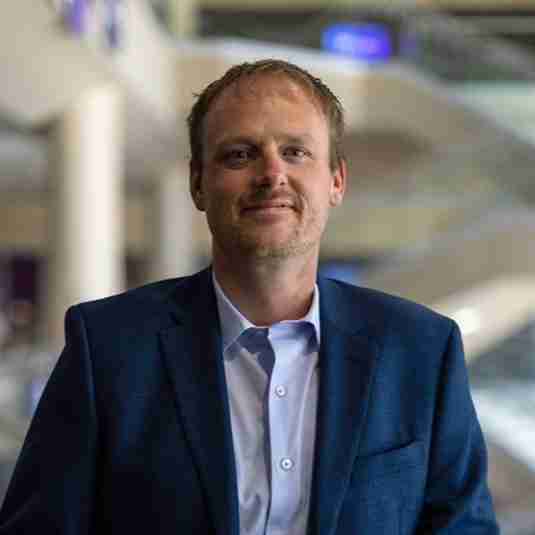 Thad Shunkwiler
Thad Shunkwiler
Thad Shunkwiler is an Associate Professor in the Department of Health Science at Minnesota State University, Mankato. In addition to his academic work, he is a licensed behavioral health provider with over a decade of experience in treating people with mental health and substance use disorders in Minnesota communities. In 2021, he founded the Center for Rural Behavioral Health, whose mission is to improve access to mental healthcare for agricultural and rural communities in Minnesota. He recently formed Midwest Mental Health Solutions, a training and consulting firm that is committed to providing services for behavioral health professionals and organizations across the Midwestern states. As an author, TED speaker, and a national and international conference keynote presenter, Professor Shunkwiler is a recognized leader in transforming behavioral healthcare.
 8:45-9:45am
8:45-9:45amThis inspirational talk breaks down the research behind our current mental health crisis and the path forward. Collectively, we all have the power to impact the mental health of ourselves and those around us. Participants will:
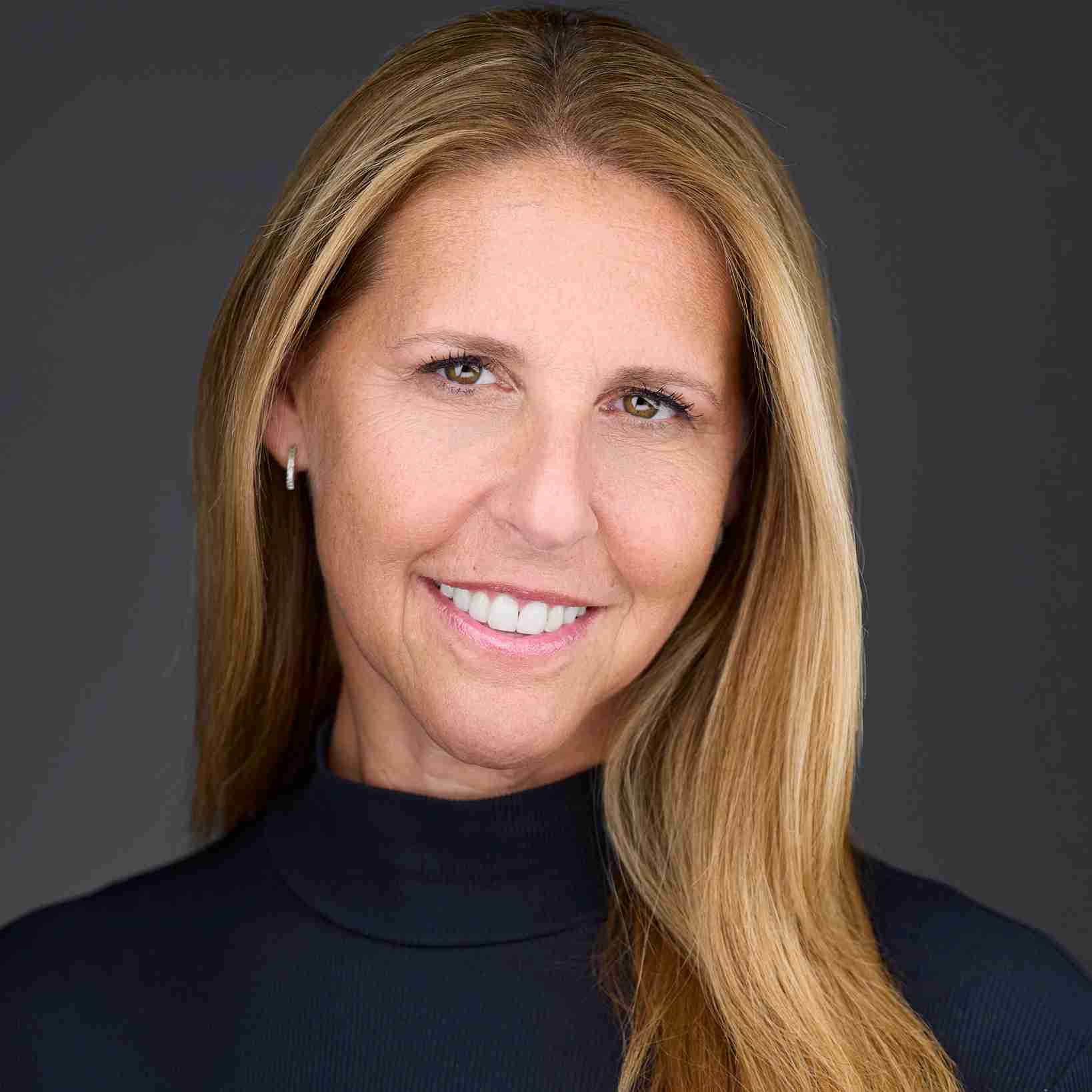 Dr. Julie Radlauer, L.M.H.C.
Dr. Julie Radlauer, L.M.H.C.
Dr. Julie Radlauer is an international keynote speaker, founder of Collectively, a TEDx speaker, and a best-selling author of CONNECT. 100 Ways to Create Happiness in your Life. As a leading expert in the social influences of mental health she uses her experience in Behavioral Health to impact individuals, organizations, systems, and communities. Her approach is collaborative, creative, and curious as she strives to educate the masses about how they can impact mental health for themselves and those around them. Julie has extensive experience in behavioral health, public health, and organizational development for more than 25 years. Through speaking, coaching, curriculum development, and writing she supports health and well-being. She is passionate about creating a world where positive mental health is a human right.
 10:00am-12:15pm
10:00am-12:15pmSuicidal thoughts are a more common human experience than you may realize, and many lives are impacted by suicide. Often, suicidal thoughts are an indication that a person is in emotional pain, and there are tools that can help. Talking more openly about suicide can help to reduce stigma and encourage people to reach out for support. Learning Outcomes:
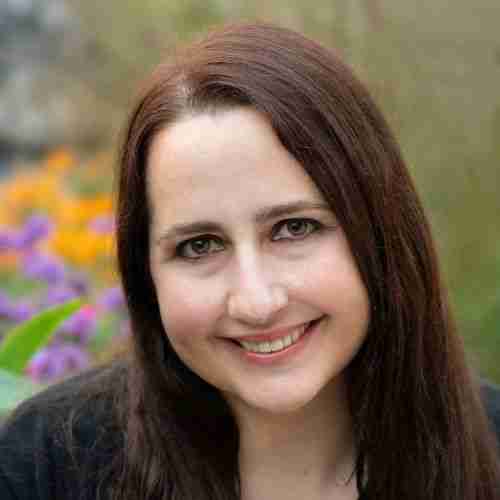 Dr. Kathryn Gordon
Dr. Kathryn Gordon
Kathryn Hope Gordon, Ph.D., is a licensed clinical psychologist in the Boston area who specializes in cognitive-behavioral therapy. For the first 10 years of her career, she was a professor at North Dakota State University (NDSU) who taught mental health-related classes and published research focused on suicide prevention and disordered eating. After working at NDSU, Dr. Gordon provided therapy services at Sanford Women’s Health Fargo clinic for three years. Currently, she works in a provider training role at a virtual eating disorder treatment organization. Dr. Gordon is passionate about sharing science-informed therapy tools with as many people as possible through trainings, public speaking, and writing. She is the author of The Suicidal Thoughts Workbook: CBT Skills to Reduce Emotional Pain, Increase Hope, and Prevent Suicide and The Suicidal Thoughts Guided Journal: CBT Practices to Soothe Emotional Pain, Build Coping Skills, and Find Hope.
The Fostering Connections for Families session emphasizes the importance of collaboration in the well-being of children in out-of-home care, with a particular focus on supporting the relationships between birth, resource, and kinship caregivers. Participants will gain an understanding of the beliefs and barriers that can hinder these relationships by hearing from an individual with firsthand lived experience as a caregiver who partnered with the parents of the children in her care. Through engaging activities and discussions, this workshop provides participants with the practical tools and strategies they need to confidently encourage and support these uniquely complex yet essential relationships
Learning Outcomes:
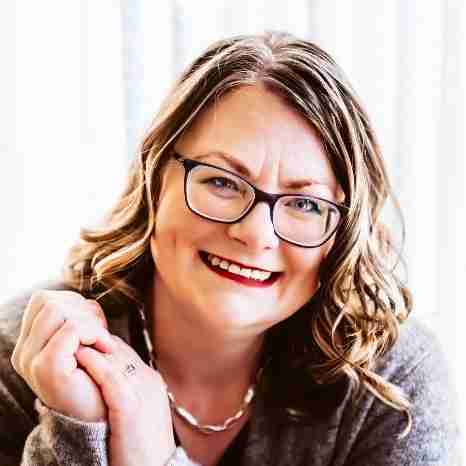 Katie Biron
Katie Biron
Katie Biron is a child welfare advocate, writer, and consultant with nearly 20 years of experience in foster care and adoption. She has firsthand experience as both a foster caregiver and an adoptive mother. Katie is passionate about helping caregivers and parents of children in out-of-home care build and navigate child-centered relationships.
Katie is passionate about creating more inclusive, authentic, and diverse representation in children's literature, particularly for children in foster and adoptive families. Her first book, The Love Tree, is one example of her effort to fill the gap in children's books that reflect the unique experiences of foster and adoptive families. Katie is the creator of the Family Connections Program™, which utilizes peer mentorship to help caregivers and parents build working relationships centered around maintaining essential connections for children or youth placed in out-of-home care.
Do any of these resonate with your experience at work? Wishing a client would cancel or not answer the door, avoiding conflicts or hard conversations, feeling isolated in your work. You’re not alone? These common patterns often emerge from stress, burnout, or systemic pressures. Over time, they can unintentionally impact the safety and well-being of the families we aim to support—a concept known as Professional Dangerousness (PD). PD refers to the often-unconscious ways that professionals may contribute to the harmful dynamics of the families they are intending to help. This engaging and reflective training will equip professionals working with children and families with the awareness and tools needed to recognize and address PD in their work. Curating more supportive environments for everyone.
Learning Outcomes:
 Jessica Hoeper, MSW, LISW
Jessica Hoeper, MSW, LISW
Jessica Hoeper is a licensed independent social worker, Reflective Consultant, Author, Mother, Wife and Founder of Ray of Hope, LLC. With almost 20 years of human service experience; in the roles of reflective coach/consultant/supervisor, child and family services supervisor, child protection social worker, juvenile justice social worker, and mental health practitioner. Jessica’s Reflective Coaching strategy is informed by and draws from her training in professional coaching and infant mental health’s reflective consultation and supervision model. Jess and her husband are raising their five kids on a farm in central Minnesota.
 12:15-1:30pm
12:15-1:30pm 1:30-2:30pm
1:30-2:30pmIn the demanding fields of health and human services, compassion fatigue and burnout can slowly erode the passion that once fueled the work. This presentation is an opportunity for professionals to reconnect with their purpose, reflect on their impact, and rediscover the "why" that brought them into this field. Through practical strategies we will explore ways to foster resilience, sustain motivation and well-being in the face of daily workplace challenges. By reaffirming purpose, professionals can continue making a meaningful difference—without losing themselves in the process.
Learning Outcomes:
 Thad Shunkwiler
Thad Shunkwiler
Thad Shunkwiler is an Associate Professor in the Department of Health Science at Minnesota State University, Mankato. In addition to his academic work, he is a licensed behavioral health provider with over a decade of experience in treating people with mental health and substance use disorders in rural Minnesota communities. In 2021, he founded the Center for Rural Behavioral Health, whose mission is to improve access to mental healthcare for agricultural and rural communities in Minnesota. He recently formed Midwest Mental Health Solutions, a training and consulting firm that is committed to providing services for behavioral health professionals and organizations across the Midwestern states. As an author, TED speaker, and a national and international conference keynote presenter, Professor Shunkwiler is a recognized leader in transforming behavioral healthcare.
 2:45-3:45pm
2:45-3:45pmWraparound has always promoted the use of natural supports in the process and this talk kicks that up a notch. Behavioral health professionals struggle with how to engage natural supports and how to assist families in building supports. This training provides the tangible tools to expand support systems with families.
Participants will:
 Dr. Julie Radlauer, L.M.H.C.
Dr. Julie Radlauer, L.M.H.C.
Dr. Julie Radlauer is an international keynote speaker, founder of Collectively, a TEDx speaker, and a best-selling author of CONNECT. 100 Ways to Create Happiness in your Life. As a leading expert in the social influences of mental health she uses her experience in Behavioral Health to impact individuals, organizations, systems, and communities. Her approach is collaborative, creative, and curious as she strives to educate the masses about how they can impact mental health for themselves and those around them. Julie has extensive experience in behavioral health, public health, and organizational development for more than 25 years. Through speaking, coaching, curriculum development, and writing she supports health and well-being. She is passionate about creating a world where positive mental health is a human right.
In an era where online sports betting is more accessible than ever, teenagers are increasingly drawn into the high-risk world of gambling. This presentation explores the factors fueling this growing trend, including social media influence, targeted advertising, and the allure of quick financial gains. We’ll examine the psychological and financial risks, legal implications, and the role of technology in enabling underage betting. Finally, we’ll discuss strategies for parents, educators, and policymakers to mitigate harm and promote responsible digital behavior. Join us as we uncover the hidden dangers of online sports betting and what can be done to protect young minds from its grip.
Learning Outcomes:
 Thad Shunkwiler
Thad Shunkwiler
Thad Shunkwiler is an Associate Professor in the Department of Health Science at Minnesota State University, Mankato. In addition to his academic work, he is a licensed behavioral health provider with over a decade of experience in treating people with mental health and substance use disorders in rural Minnesota communities. In 2021, he founded the Center for Rural Behavioral Health, whose mission is to improve access to mental healthcare for agricultural and rural communities in Minnesota. He recently formed Midwest Mental Health Solutions, a training and consulting firm that is committed to providing services for behavioral health professionals and organizations across the Midwestern states. As an author, TED speaker, and a national and international conference keynote presenter, Professor Shunkwiler is a recognized leader in transforming behavioral healthcare.
Clear communication is kind. Yet in the work of child welfare and human services we often skirt around, avoid or too harshly deliver messages to families/clients out of our own fear of the information. We too easily forget that we are working in relationship with adults, children and families. To effectively have difficult conversations you have to start with connection. This training will discuss what gets in our way, you will identify for yourself what gets in your way and we discuss the importance of working through this and find ways to become more comfortable with having difficult conversations.
Learning Outcomes:
 Jessica Hoeper, MSW, LISW
Jessica Hoeper, MSW, LISW
Jessica Hoeper is a licensed independent social worker, Reflective Consultant, Author, Mother, Wife and Founder of Ray of Hope, LLC. With almost 20 years of human service experience; in the roles of reflective coach/consultant/supervisor, child and family services supervisor, child protection social worker, juvenile justice social worker, and mental health practitioner. Jessica’s Reflective Coaching strategy is informed by and draws from her training in professional coaching and infant mental health’s reflective consultation and supervision model. Jess and her husband are raising their five kids on a farm in central Minnesota.
 4:00-5:00pm
4:00-5:00pmThe Neuroscience of High-Risk Behavior explores how substances and other high-risk behaviors such as alcohol/drugs, food addiction, depression/anxiety, and technology overuse affect healthy brain development. Participants learn how to protect brain development and prevent children and adolescents from engaging in such risky behavior.
Learning Outcomes
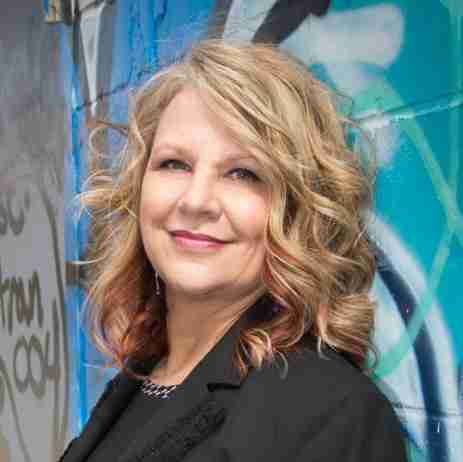 Crystal Collier, PhD, LPC-S
Crystal Collier, PhD, LPC-S
Dr. Crystal Collier is an expert in adolescent brain development, prevention programming, parent coaching, addiction, family-of-origin work and training new counselors. She created an online, plug-n-play prevention program called KnowYourNeruo.org which teaches the neurodevelopment effects of risky behavior to students, parents and staff.
 8:30-9:30am
8:30-9:30amBased on his memoir, David shares his early experiences navigating homelessness with a mentally ill parent to his time in foster care and eventually escaping the cycle of poverty that traps generations of families. A graduate of both Vassar College and UCLA School of Law, David’s inspirational story recounts how he’s spent decades as a child welfare expert and advocate, working to effect change in major corporations like Disney and Amazon, and through governmental changes in Washington, DC, being recognized by President Barack Obama as an American Champion of Change. In his talks and through his work, David continues to uplift the communities from where he began – those in poverty, foster youth, families, and individuals struggling with mental illness, and the LGBTQ+ community.
Learning Objectives:
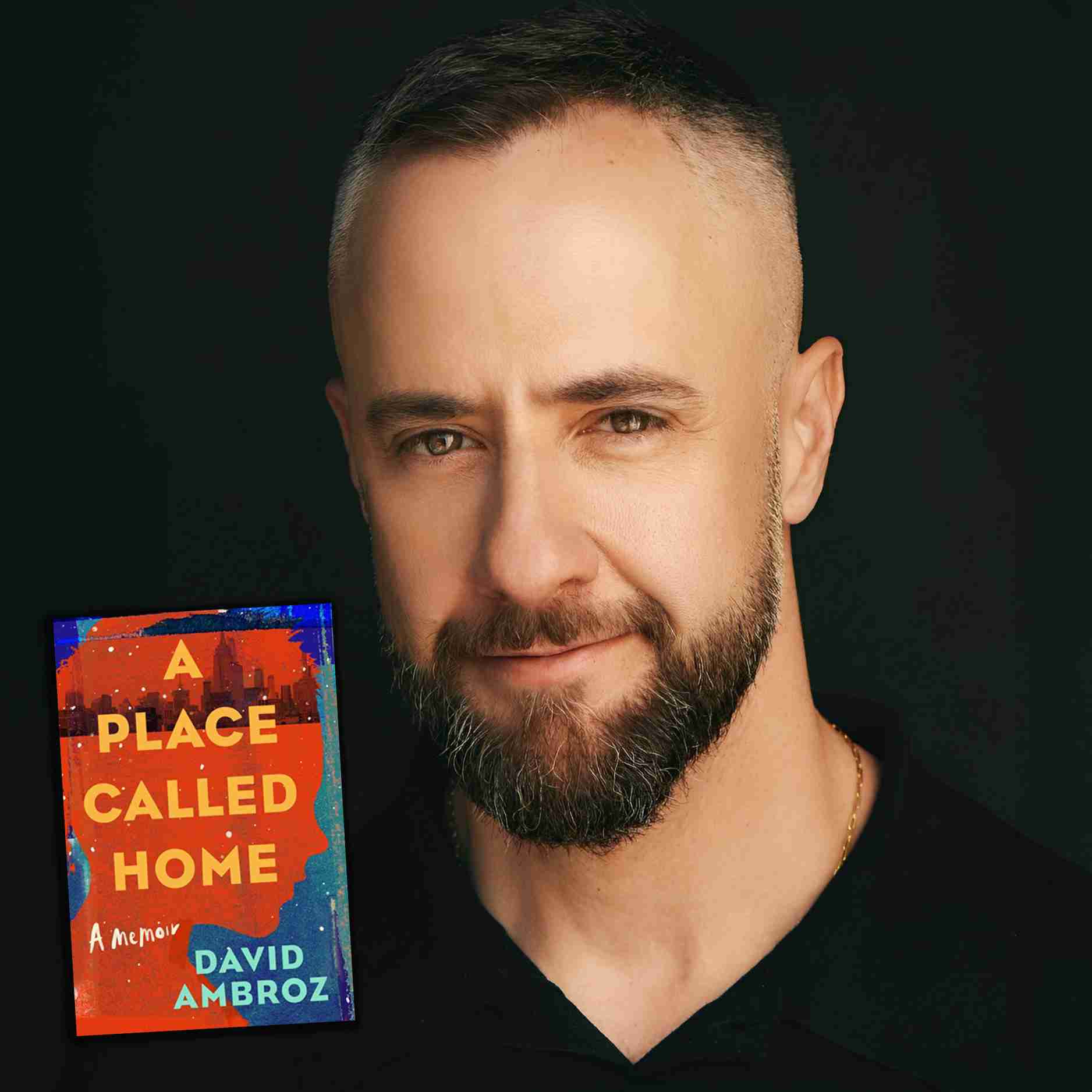 David Ambroz
David Ambroz
David Ambroz is a national poverty and child welfare expert and advocate. He was recognized by President Obama as an American Champion of Change. Currently serving as the Head of Community Engagement (West) for Amazon, Ambroz previously led Corporate Social Responsibility for Walt Disney Television, and has served as president of the Los Angeles City Planning Commission as well as a California Child Welfare Council member. After growing up homeless and then in foster care, he graduated from Vassar College and later earned his J.D. from UCLA School of Law. He is a foster dad and lives in Los Angeles, CA.
 9:45-10:45am
9:45-10:45amTechnology is shaping how our brain develops with positive and negative effects. More teens are suffering from depression and anxiety than any other time in our history due to too much screen time. Video game manufacturers hire teen testers to study the addictive nature of games in order to increase sales. Dating sites are teaching youth that the “hook-up” is the norm. This presentation elucidates how screen exposure affects mood, learning, memory, sleep, and relationships as well as setting healthy tech limits.
Learning Outcomes
 Crystal Collier, PhD, LPC-S
Crystal Collier, PhD, LPC-S
Dr. Crystal Collier is an expert in adolescent brain development, prevention programming, parent coaching, addiction, family-of-origin work and training new counselors. She created an online, plug-n-play prevention program called KnowYourNeruo.org which teaches the neurodevelopment effects of risky behavior to students, parents and staff.
Coming soon
 TBD
TBD
Coming soon
There has long been a canyon of understanding between the fields of substance misuse prevention and substance use disorder treatment. While treatment views substance misuse as a disease, prevention aims to help people make better choices. The opioid and mental health crisis in America has exacerbated this rift, overwhelming treatment and recovery centers while prevention professionals work to put out fires in communities rather than focusing on upstream, primary prevention efforts. The relatively new field of epigenetics provides both a literal and metaphorical way to build a bridge between prevention and treatment. This presentation provides knowledge prevention and treatment professionals need to understand each other and work in partnership to build a system that works to abate our substance misuse problems.
Learning Outcomes
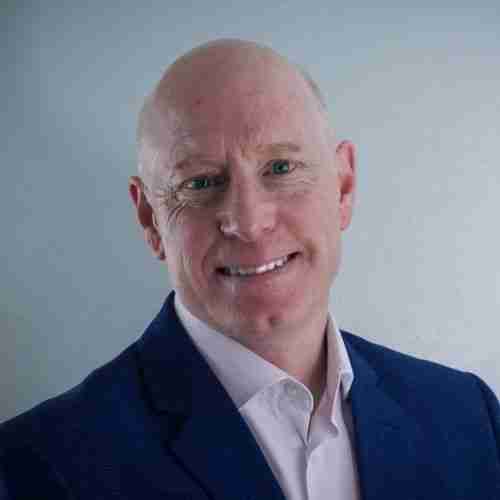 Rodney A. Wambeam, Ph.D.
Rodney A. Wambeam, Ph.D.
Rodney Wambeam, Ph.D. is a Senior Research Scientist at the Wyoming Survey & Analysis Center (WYSAC) of the University of Wyoming (UW), where he is also Director of the Mountain Plains Prevention Technology Transfer Center (Region 8 PTTC). Dr. Wambeam and his team provide training and technical assistance across the mountain plains, and they conduct numerous substance abuse prevention and treatment research projects in many states including Arkansas, North Dakota, Oregon, and Wyoming. He has presented more than 50 keynotes across the country on substance abuse prevention with millennials and on the history of alcohol in America. His book “The Community Needs Assessment Workbook” from Oxford University Press came out in 2015.
 11:00am-12:00pm
11:00am-12:00pmThis session offers an in-depth update on how the Training Academy for Addiction Professionals (TAAP) is utilizing the Opioid Settlement Fund to strengthen North Dakota’s addiction counseling workforce. Learn how this funding is being directed toward expanding training opportunities, scholarships, continuing education, and retention strategies—especially in rural and underserved areas. The session will also outline how professionals and supervisors can engage with and benefit from these evolving initiatives.
Learning Outcomes
.jpg) Denise Andress, MBA BSN
Denise Andress, MBA BSN
Denise Andress is the Director of the Training Academy for Addiction Professionals (TAAP). With over 30 years of experience in healthcare, Denise has dedicated 25 years to student engagement and healthcare workforce development. Her nursing background has been foundational in her lifelong commitment to ensuring that rural communities, particularly in North Dakota, have access to the healthcare professionals they need. Denise's passion for supporting rural workforce initiatives drives her work in expanding access to addiction counseling and ensuring that rural populations receive the care they deserve.
Since its inception in 2021, Kinship- ND has provided services to 1,230 families and 2,204 children. It has also provided $1,135,000.00 in reimbursement to Kinship providers in the state of North Dakota. Kinship-ND is a program providing support for caregivers who provide full-time care and protection for a child who cannot remain in their home. This could be through an informal arrangement between the parents and the caregiver, or through a more formal arrangement when the Human Service Zone is involved. Kinship placement can be with either a relative or a non-relative caregiver. This program is critical in keeping children with kin, and in their own communities, by providing one-on-one support, financial assistance and additional resources.
Come learn more about the program, meet kinship providers that are providing the care and learn how Kinship ND has assisted their families. You will also learn how you, as a community member, or service provider, can refer families to Kinship ND. Learning outcomes:
Coming soon
 TBA
TBA
Coming soon
 12:00-1:30pm
12:00-1:30pm 1:30-3:00pm
1:30-3:00pmIn her memoir, “The Many Lives of Mama Love”, Lara Love Hardin recounts her extraordinary journey from Suburban soccer mom to opioid addict, jailhouse shot-caller and, ultimately, a successful ghostwriter and literary powerhouse. Convicted of 32 felonies, Lara learned to navigate the harsh realities of incarceration, bringing love and healing to her fellow inmates while rebuilding her life from the ground up after her release. Lara is the co-founder of The Gemma Project, which provides support and reentry programming for currently and formerly incarcerated women. Through her inspiration talk, Lara will share her deeply personal story of shame, redemption, and resilience, challenging a system that often defines people by their worst mistakes.
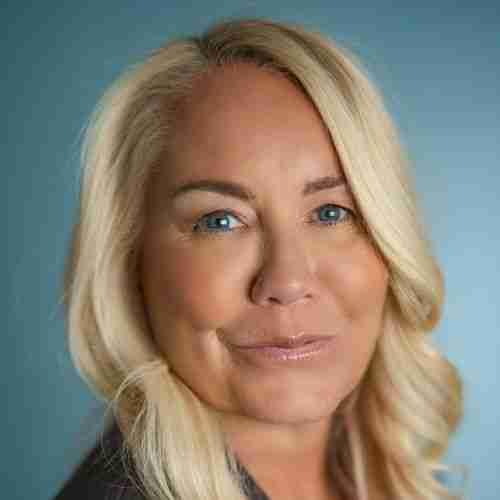 Lara Love Hardin
Lara Love Hardin
LARA LOVE HARDIN is a literary agent, author, prison reform advocate, and president of True Literary. Her memoir, The Many Lives of Mama Love is a 2024 Oprah Book Club pick and a New York Times bestseller. She has an MFA in creative writing and apart from her own book, is also a five-time New York Times bestselling collaborative writer, including the #1 New York Times bestseller Designing Your Life, and 2018 Oprah Book Club pick, The Sun Does Shine, which she co-authored with Anthony Ray Hinton about his 30 years as an innocent man on Alabama’s death row. In 2019, she won a Christopher Award for her work “affirming the highest values of the human spirit,” nominated for an NAACP Image Award, and short-listed for the Dayton Literary Peace Prize. Lara is also the co-founder of The Gemma Project, a gender-responsive organization serving incarcerated and formerly incarcerated women with integrity and compassion.
 3.00-4:00pm
3.00-4:00pm 4:00-5:00pm
4:00-5:00pmThis keynote will center on the vital importance of relationships and collective care in the work of helping professionals, particularly those serving in Tribal and urban Native communities. Drawing from Indigenous knowledge systems, Dr. Julie Smith-Yliniemi will emphasize how healing is rooted in connection—to land, to culture, and to one another.
Attendees will explore how authentic partnerships, built on trust, respect, and reciprocity, are essential to addressing behavioral health needs in Native communities. In addition, the keynote will highlight the importance of self-care—not as an individual luxury, but as a communal responsibility and spiritual practice. Through guided experiential activities such as tobacco tie making, land-based reflection, and culturally grounded wellness exercises, participants will gain tools to care for themselves while strengthening their work with others.
This session invites attendees to reflect, restore, and recommit to the powerful work of collective healing through an Indigenous lens.
Learning Objectives
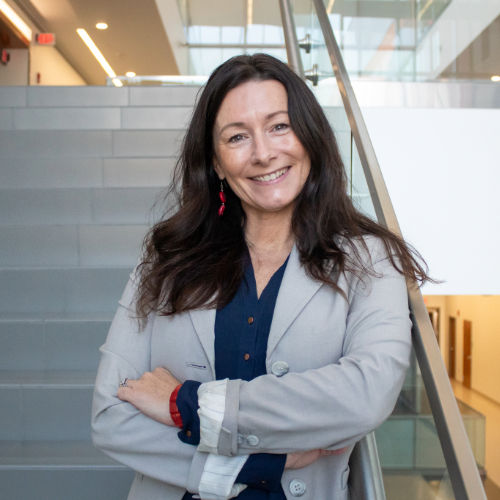 Dr. Julie Smith-Yliniemi (UND)
Dr. Julie Smith-Yliniemi (UND)
Dr. Julie Smith-Yliniemi (Anishinaabe) is an educator, counselor, and community-engaged researcher serving as Assistant Professor in the Department of Indigenous Health at the University of North Dakota. She is the Director of Community-Engaged Research for the Indigenous Trauma and Resilience Research Center and a fellow in multiple national initiatives focused on Indigenous mental health and healing. With a deep commitment to decolonizing behavioral health practices, Julie brings a unique blend of academic expertise, cultural grounding, and lived experience to her work. Her engaging presentations center relational accountability, wellness, and the power of Indigenous knowledge systems in transforming care.
 8:30am-9:30am
8:30am-9:30amLahey offers an evidence-based exploration of what it means when experts proclaim, “Substance abuse is preventable.” She begins with an overview of why humans use and abuse substances, an explanation of why the adolescent brain is uniquely wired for novelty and the risk of substance use while being uniquely vulnerable to those substances in very specific ways. She will identify the major risk factors for substance abuse and explain what adults can do to overcome the weight of a given child's risk factors. Lahey offers an overview of the research as well as concrete, practical takeaways adults can use to change their thinking and behavior and begin preventing childhood substance use and abuse at home. Participants will leave Lahey’s talks feeling informed, challenged, empowered and entertained.
Attendees will learn:
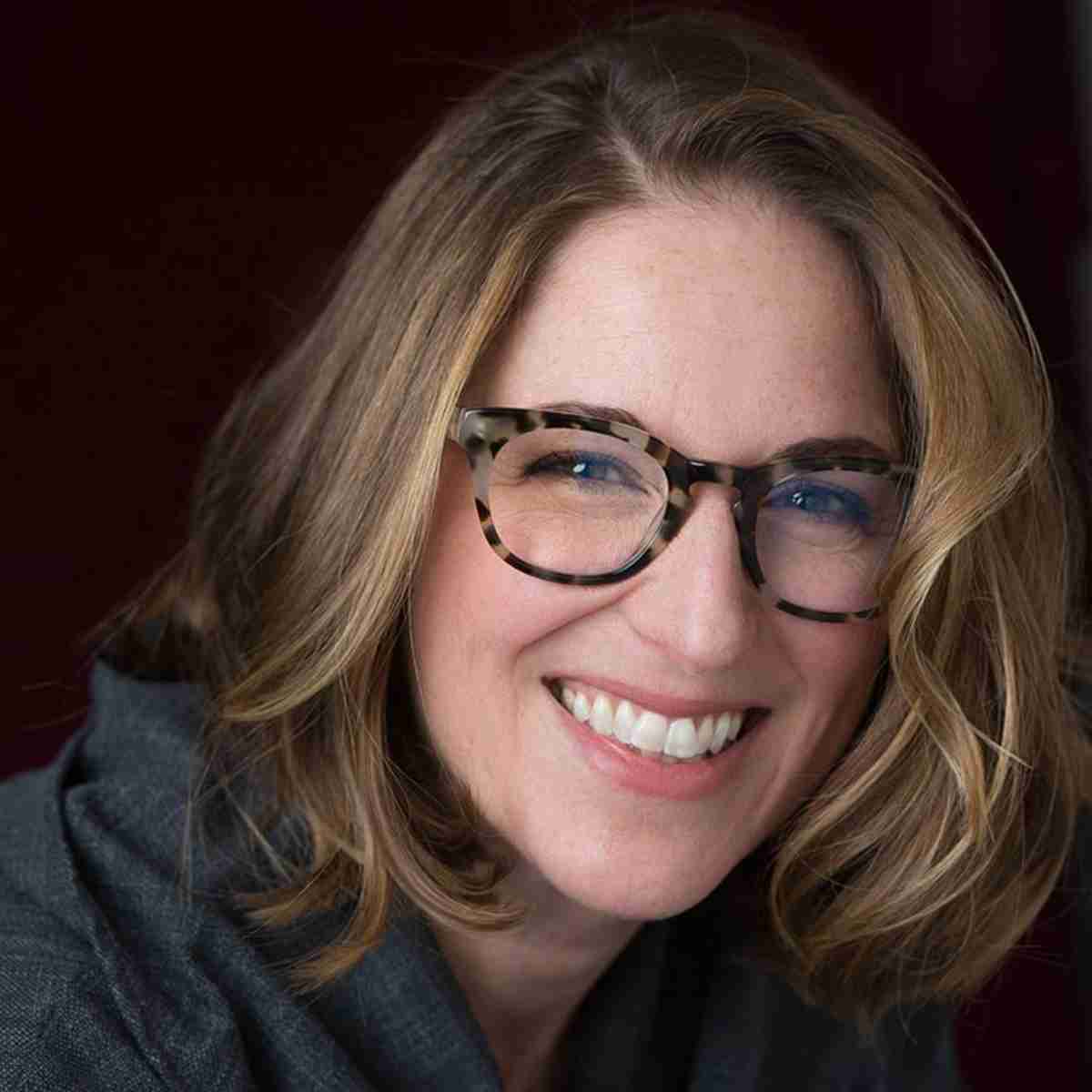 Jessica Lahey
Jessica Lahey
Jessical Lahey speaks to a wide variety of audiences about the science of learning, motivation, engagement and substance use prevention with the believe that adults have the power to help kids become more autonomous, competent, connected and fulfilled. Jesscia is an educator and best-selling author of The Gift of Failure and The Addiction Inoculation, as well as a Recovery and Prevention Coach. Her goal, when speaking to adolescents, is to give them a path forward without having to self-medicate their pain, uncertainty and angst with addictive substances. She knows. She’s been sober since 2013 and she’s been to the dark, scary places both as an alcoholic and a mother of two kids with a heightened genetic risk for substance use disorder.
 9:45am-10:45am
9:45am-10:45amYes, it can be challenging to get peopleto attend talks on substance use prevention. This may be because of shame and stigma around the topic of substance use disorder, because they are dealing with substance use problems themselves or in their family, or because they erroneously believe all kids drink or use drugs and there’s nothing we can do about it. The talk that has become one of Jess’ most popular is a talk on Gift of Failure topics - increasing motivation, engagement, competence, self-efficacy and self-advocacy in kids - while giving audiences evidence-based information on how increasing motivation, engagement, competence, self-efficacy and self-advocacy in kids also reduces their risk for substance use. Audiences come for The Gift of Failure topics and leave with information on substance use risk, preventative factors, and myth-busting revelations regarding adolescence and substance use (e.g. sipping at home increases risk for developing substance use disorder, as do those “kids are going to do it anyway, we might as well do it in our home and take keys away” parties. Call it what you want, I call it Process Over Product: Increasing Motivation, Engagement, Competence and Self-Efficacy in Kids.
Attendees will learn:
 Jessical Lahey
Jessical Lahey
Jessical Lahey speaks to a wide variety of audiences about the science of learning, motivation, engagement and substance use prevention with the believe that adults have the power to help kids become more autonomous, competent, connected and fulfilled. Jesscia is an educator and best-selling author of The Gift of Failure and The Addiction Inoculation, as well as a Recovery and Prevention Coach. Her goal, when speaking to adolescents, is to give them a path forward without having to self-medicate their pain, uncertainty and angst with addictive substances. She knows. She’s been sober since 2013 and she’s been to the dark, scary places both as an alcoholic and a mother of two kids with a heightened genetic risk for substance use disorder.
This training will focus on identifying the secondary trauma workers in helper professions are exposed to and the importance of self-care. We will discuss the everyday stressors as well as the new stressors identified during and in the aftermath of the pandemic. Strategies for promoting self-care including mindfulness and meditation will be discussed as well as techniques to become more stress resistant and promote a healthy work/life balance.
Upon completion participants will be able to:
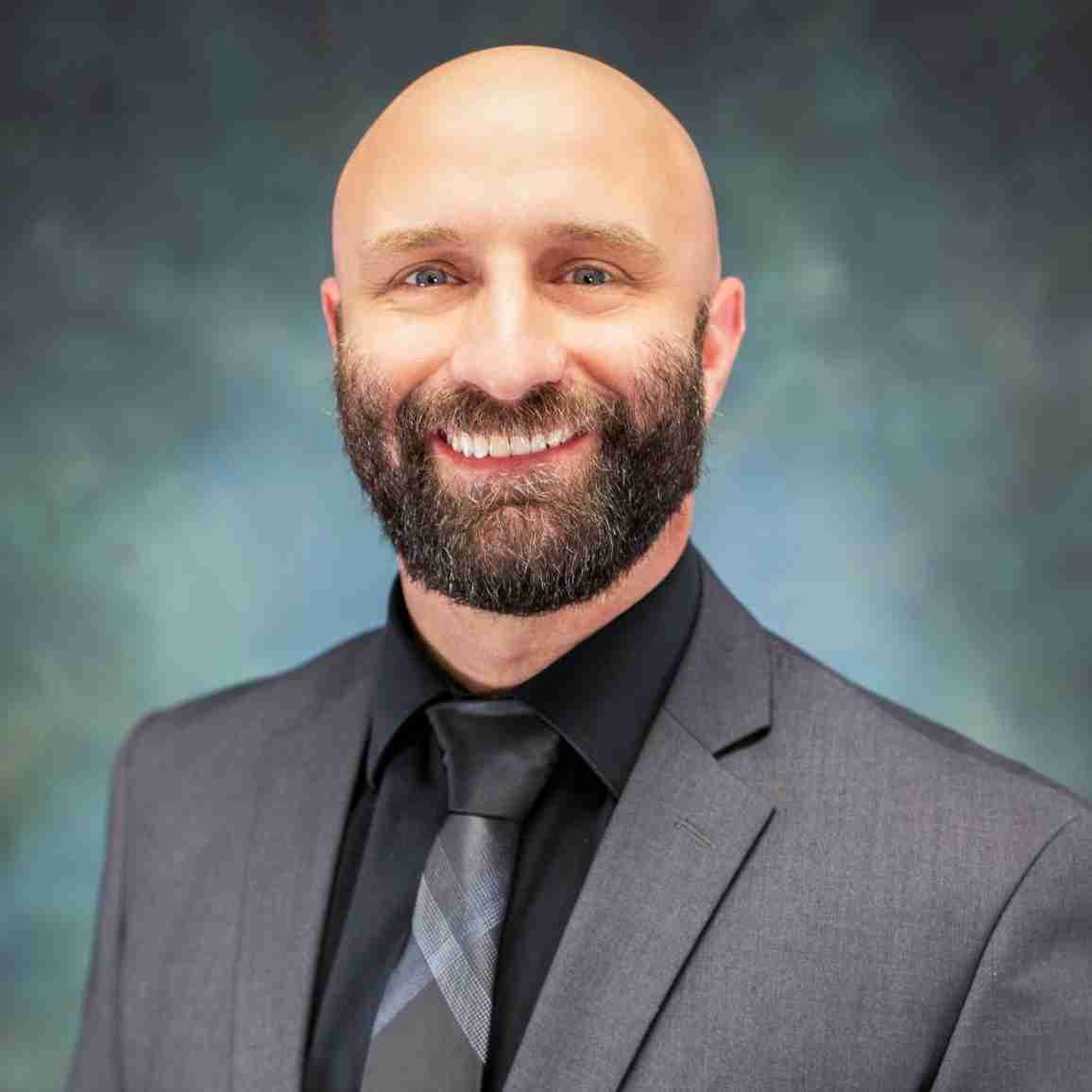 Robin Pendleton
Robin Pendleton
Robin Pendleton: Director of Training for Pursuit of Discovery has developed curriculum and trainings for numerous State Units on Aging, local governments, and not for profits focusing on communication, professional development, and supervisory skills. He has also been employed with the State of Missouri for over 20 years, working with the Departments of Mental Health and currently with Department of Health and Senior Services. He has served as the training unit supervisor for Adult Protective Services as well as trainer for Human Resources. He has over a decade of experience training employees in many topics focused on providing trauma informed, person centered care. Robin is also currently the Chair of the Curriculum Development Committee for the National Adult Protective Services Association (NAPSA).
Dr. Katie Johnson is a child abuse pediatrician at Mayo Clinic and an emerging leader in child abuse education and medical child abuse. This presentation is a module from her “CAP-CuP” series (the “Child Abuse Pediatrics Curriculum for Physicians”), which has been requested by over 80 child abuse programs across the world. Prioritizing interactive education and foundational knowledge, this module is applicable for a broad audience of multi-disciplinary team members and will leave attendees with a better understanding of how to recognize and respond to concerns about medical child abuse.
By the end of this activity, learners will be able to:
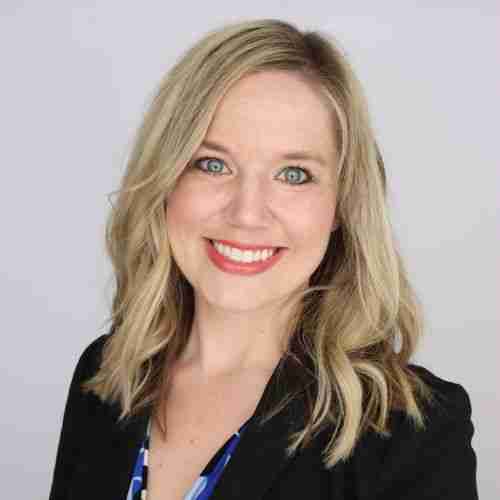 Dr. Katie Johnson
Dr. Katie Johnson
Pediatrician- Mayo Clinic, Rochester, MN Dr. Katie Johnson is originally from Washington state. She completed her undergraduate education at Cornell University, her medical school and pediatrics residency at Mayo Clinic, and her fellowship in Child Abuse Pediatrics at the University of Washington. She returned to Mayo Clinic in 2022 to join the Mayo Clinic Center for Safe and Healthy Children and Adolescents.
 11:00am-12:00pm
11:00am-12:00pmMost organizations struggle to build dynamic teams and keep good people, because they neglect their most powerful resource--relationships. We know what DOESN'T work... an office espresso machine, bonus vacation days, and lavish staff parties. Dangling perks doesn't make a good team great for the long haul. Rather, such "carrots" invite staff to passively wait for management to build a culture that can only arise when everyone grasps a shared vision and accepts personal ownership. Hybrid or remote staffing, interpersonal conflict, and workplace silos create isolation and hinder the trust needed for teamwork and innovation. When people feel valued and connected as part of something bigger than themselves, job satisfaction skyrockets along with organizational effectiveness.
Participants will:
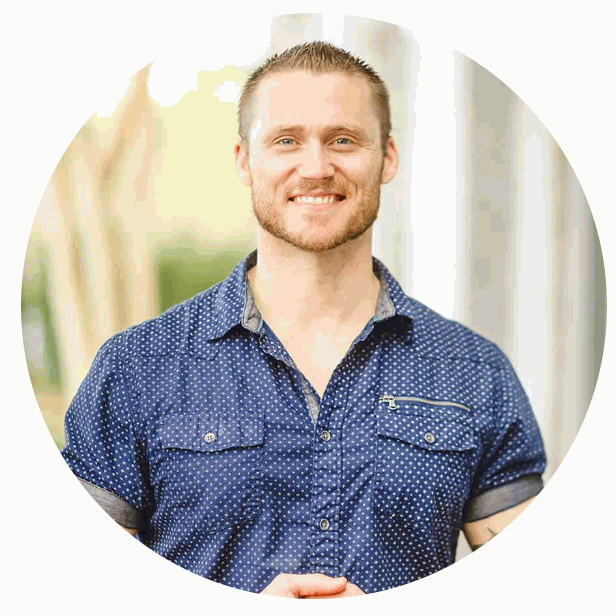 Matthew M. Anderson
Matthew M. Anderson
Matthew M. Anderson is the author of Being Super Human (2025) and Running Mate (2013). Matt is a Black Belt in Karate, an ordained minister, and international speaker and leadership coach who has spent over two decades developing leaders in the non-profit, government, and public sectors. The founder of The Kindness Initiative and Surprise Church Bismarck, Matt has coached hundreds of leaders and spoken to thousands around the world out of his passion to help individuals and teams live up to their immense potential.
 1:00pm-4:30pm
1:00pm-4:30pmThe reaches of trauma extend beyond our clients. As a supervisor, you and your staff will experience not only your own traumas but those of your clients. That toxic stress and secondary trauma can lead to post traumatic stress, compassion fatigue, and burn out with your team and potentially yourself. Trauma-Informed Supervision can mitigate some of those effects on staff by focusing on the core principles of Trauma-Informed Care, especially relevant to exposures experienced in helper professions. This type of supervision fosters a culture of empathy, safety, healing, and peer support within your team and beyond.
Learning Outcomes:
 Robin Pendleton
Robin Pendleton
Robin Pendleton: Director of Training for Pursuit of Discovery has developed curriculum and trainings for numerous State Units on Aging, local governments, and not for profits focusing on communication, professional development, and supervisory skills. He has also been employed with the State of Missouri for over 20 years, working with the Departments of Mental Health and currently with Department of Health and Senior Services. He has served as the training unit supervisor for Adult Protective Services as well as trainer for Human Resources. He has over a decade of experience training employees in many topics focused on providing trauma informed, person centered care. Robin is also currently the Chair of the Curriculum Development Committee for the National Adult Protective Services Association (NAPSA).
